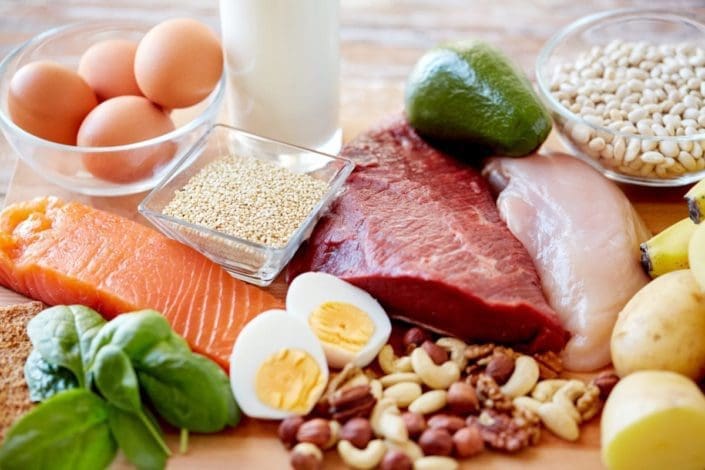Who invented the Lemon Detox diet?
Connolly (2016),says that 60 years ago Stanley Burroughs, an American naturopath conceived a juice diet which was coined the ‘Master Cleanse’, and consisted of omitting food from your diet and instead drinking a drink of lemon juice, cayenne pepper, maple syrup and water. This ‘Master Cleanse’ was designed to flush out preservatives, chemicals and toxins that are in our bodies and assist with weight loss. This concept has been reinvented over the last five years and named the Lemon Detox Diet, with palm syrup replacing maple syrup.
The Lemon Detox Diet was thrust into public consciousness when famous
personalities such as Beyoncé and Mariah Carey embraced the diet and praised its
weight loss and stress relieving qualities. The popularity of this diet grew so much so that 2 week kits which
include instructions and ingredients have a retail cost of $160 USD and
regularly sell out of stock.
How does it work?
The process of this cleanse entails that people consume around eight portions of this lemon mix per day for around 10-14 days straight with the loose promise of rapid weight loss. The company that oversees these cleanse kits says that the lemon detox diet "works to ease and improve toxic and overweight conditions and lets the body cleanse itself naturally while you take a break from solid food"(Connlly, 2016).
How reliable is it?
 Despite original claims and what commercial companies have alleged, the Lemon Detox Diet has been subject to lengthy scientific scrutiny as it has proven to only effect short term results in weight loss, and be problematic in the long-term. O’Neil (2008), a scientist who analysed the diet found that:
Despite original claims and what commercial companies have alleged, the Lemon Detox Diet has been subject to lengthy scientific scrutiny as it has proven to only effect short term results in weight loss, and be problematic in the long-term. O’Neil (2008), a scientist who analysed the diet found that:"It strips weight off, but there is a terrible, sinister downside" (O’Neil, 2008).
Through omitting food entirely from your diet, O’Neil warns people of the side-effects of low protein intake, which deteriorates muscle mass. The result, O’Neil says, is that:
“Your metabolic rate is going to plummet. Chances are, when you go off the detox you are going to be fatter than when you started” (O’Neil, 2008).
The Recommended Dietary Intake (RDI) of protein for Women is 46 grams per day, and 64 grams for men. The Nutrient Reference Values (NRV) executive summary reiterates the dangers of protein depletion in saying:
 “fasting can cause substantial body protein losses as energy needs take priority. The protein lost is, however, also necessary to the functioning of the body. A serious depletion in the body mass protein can be life threatening with muscle loss, including loss of heart muscle.”
“fasting can cause substantial body protein losses as energy needs take priority. The protein lost is, however, also necessary to the functioning of the body. A serious depletion in the body mass protein can be life threatening with muscle loss, including loss of heart muscle.”
Despite short term weight loss possibilities, it is a dangerous diet to embrace as it does not provide essential daily nutrients(Sandon, 2007).Cutting out solid foods from your diet will likely result in vitamin deficiencies, muscle breakdown and blood-sugar problems — not to mention frequent liquid bowel movements (Sandon, 2007.
Lona Sandon, a dietitian from the American Dietetic Association says that:
“Long-term fasts lead to muscle breakdown and a shortage of many needed nutrients"
Through omitting food from our diet, and therefore depriving ourselves of vitamins and minerals that we get from food, is likely to "actually weaken the body’s ability to fight infections and inflammation,” (Sandon, 2007).
Let's break it down, what are the main dangers?
Let's break it down, what are the main dangers?
By not eating any foods besides what is contained in the lemon drink, you are also depriving yourself of fats, vitamins, minerals and fibre. Whilst you may lose weight, it is more likely because you are not eating any food, rather than some remarkable quality the lemon drink promotes weight loss.
A breakdown of the flaws of this fad diet would be:
1. It does not promote or teach you any healthy habits or anything about cooking or preparing nutritional meals, and so when you eventually come out of the diet, you are likely to go back to your past dietary patterns.
2. Fasting has a side effect of protein depletion, which eats away at muscle mass, causes your metabolic to rapidly decrease, and therefore, even more weight is likely to be gained when you return to your regular diet.
3. You are not actually losing body fat, you are losing fluid and electrolytes (Saxelby, 2014)
4. It is not a long- term solution to weight loss and cleansing issues. Rather, a balance between nutritional meals and physical exercise will achieve more permanent, long lasting health benefits.
Recommendations for long term weight loss and maintenance
1. Choose nutritious foods:
Use the Australian Dietary guidelines to help choose foods with the most nutrients and least hidden kilojoules.
For example, according to the Australian Government Department of Health (2015), "making half our meals coloured vegetables or salad and having smaller portions of the other foods, we can reduce the kilojoules by up to half".
2. Add variety to your diet:

Recommendations for long term weight loss and maintenance
Use the Australian Dietary guidelines to help choose foods with the most nutrients and least hidden kilojoules.
For example, according to the Australian Government Department of Health (2015), "making half our meals coloured vegetables or salad and having smaller portions of the other foods, we can reduce the kilojoules by up to half".
2. Add variety to your diet:
Choose foods from all five food groups and follow recommended number of serves from the Australian guide to healthy eating chart.

As shown, discretionary food items and alcohol should be avoided or limited to help you lose weight as these are highest in saturated fat, added salt, added sugars.
3. Plan your meals
Long term weight loss depends on your ability to prepare meals that are nutritious on a daily basis, and your ability to avoid unplanned snacking on discretionary foods.
Eat for Health (2015) noted that "by thinking ahead about meals and snacks we can spread the number of serves from the five foods groups over interesting meals and snacks".
4. Get physically active
Frequent exercise that ensures you are burning more energy than you are consuming is the key to weight loss over-time (Sarnataro, n.d). Body weight increases when energy intake is greater than energy expenditure (Hill, Wyatt and Peters, 2012). therefore, in order to lose weight it is crucial to ensure you are doing enough exercise to burn off the energy you are consuming, and whilst the amount of exercise you should be doing is dependent on a range of factors, most should aim to do a workout everyday.
Harrisber (2019), a fitness expert perhaps best summarises how exercise should be looked at in saying:
"Instead of looking at fitness as a one hour occurrence every day, we need to start seeing it as a 24-hour endeavour. What are you doing over the course of the day? How much sitting are you doing? Crushing a hard 60-minute workout doesn’t mean you earned the right to sit around all day and expect to see results. We should be training in a variety of HR zones and intensities, and ultimately strive to do something every day"
References:
Australian Dietary
Guidelines 2013. (n.d.). Retrieved May 22, 2019, from http://www.nutritionaustralia.org/national/resource/australian-dietary-guidelines-2013
Harrisberg, D. (2019, January 25). How much exercise should I do each
week to lose weight? We asked a fitness expert. Retrieved May 22, 2019, from https://www.bodyandsoul.com.au/fitness/training-tips/
Healthy Eating Pyramid. (n.d.). Retrieved May 22, 2019, from:http://www.nutritionaustralia.org/national/resource/healthy-eating-pyramid
Lemon detox diet examined. (2016, June 17). Retrieved from https://www.bodyandsoul.com.au/diet/diets/lemon-detox-diet-examined/news-story/2dffee501c6c0f2c566ab33037b2c850
Moores, S. (2007, May 18). Experts warn of detox
diet dangers. Retrieved from
http://www.nbcnews.com/id/18595886/ns/health-diet_and_nutrition/t/experts-warn-detox-diet-dangers/
National Health and Medical Research Council. (n.d.). Eat For Health.
Retrieved May 22, 2019, from https://www.eatforhealth.gov.au/
O'Neil, M. (n.d.). About
Matt O'Neill. Retrieved from http://smartshape.com.au/a/842.html
Sandon,
L. (n.d.). American Dietetic Association. Retrieved May 19, 2019, from http://www.whathealth.com/organizations/a/amdieteticasc-us.html
Sarnataro, B. R. (n.d.). Good Exercises to Lose Weight, How Much
Exercise to Lose Weight. Retrieved May 22, 2019, from https://www.webmd.com/fitness-exercise/features/exercise-lose-weight#1
Saxelby, C. (n.d.). Lemon Detox Diet Review. Retrieved May 22, 2019, from
https://foodwatch.com.au/blog/healthy-weight-loss/item/lemon-detox-diet-review.html
Vipercore-13. (2005, January 01). Protein. Retrieved May 22, 2019, from https://www.nrv.gov.au/nutrients/protein



Comments
Post a Comment